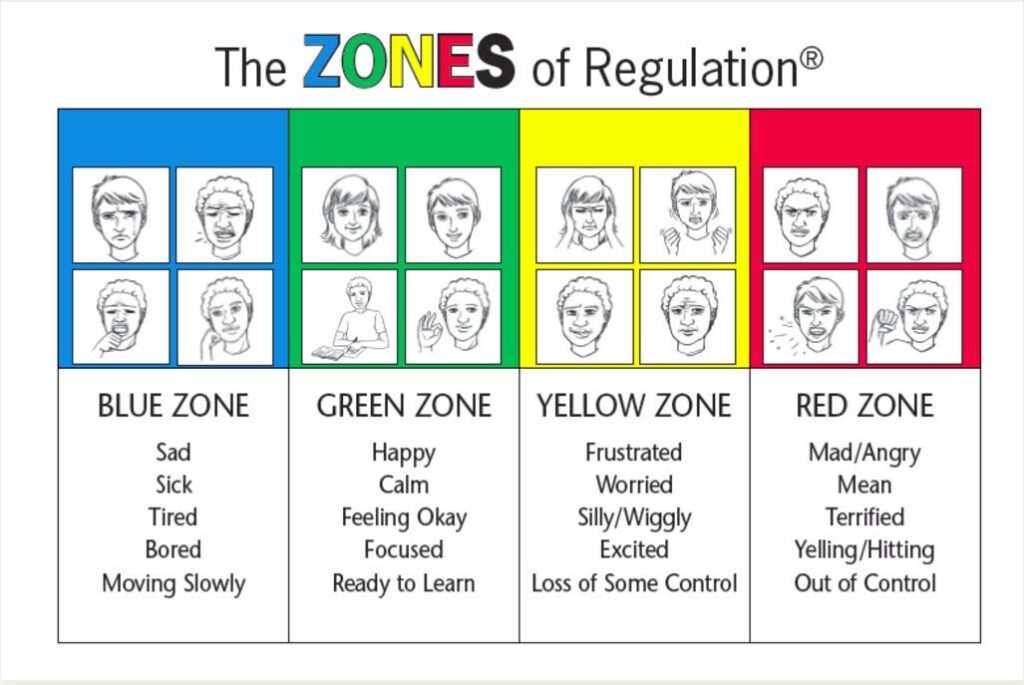Being able to identify what we feel, for most adults, can cause uncomfortable thoughts, raised anxiety and, at times, panic. Let alone having the notion of being able to articulate and express, within a discussion, how someone or something is making you feel, good or bad. This can be the same situation for many of our children – some children find it extremely difficult to communicate their feelings. Hence often, it’s easier for a child to pinpoint and explain more obvious feelings such as; ‘Happy’ or ‘Excited’, when feelings like ‘Bored’ or even a polar opposite ‘Elated’ are not as recognisable. Even ‘Angry’ or ‘Disappointed’ can be hard to explain what the feeling is, how it looks and what to do with it, especially when referring to ourselves. Which is why communicating with Children is so important.
There are many benefits that come out of communicating with children about feelings, for example; the skill to understand oneself and both people and the world around you or creating opportunities for honest and real conversations. However, if the topic of feelings and emotions are left out of our chats, there can be many outcomes. These can include low self-esteem, anger issues and more. Not only within our children but also within the family home.
Below, I touch on why it is imperative to communicate with children about feelings, including when and how. And I end with a little advice on how to approach difficult subjects with them and a resource list to refer to; because lets face it doesn’t end here.
Why is it so important to talk to children about feelings?
- It will allow children opportunities to develop an emotional vocabulary. If your child hears different vocabulary explaining feelings they are more prone to identify and label emotions/feelings.
- Once you begin to communicate with your child about feelings they will begin their journey of being able to identify, acknowledge and assist their own feelings; self-regulate. In simple words, to be able to self-regulate is to be able to do what needs to be done in the ideal way for the given situation (Kuypers, 2011). An example of being able to self-regulate; walking away from a fight, without becoming physical, after someone called your mum ugly. *Some children may struggle with self-regulation, for example children with an Autism Spectrum Condition (ASC) or Attention Deficit Hyperactive Disorder (ADHD), but it should be noted not everyone who has difficulty regulating has a diagnosis. For more information on self-regulation, please see bottom of post.
When should we begin communicating with children about feelings?
- Communication, conversations and discussions about feelings can happen at any age and any time. Consider your child’s developmental stage. Let them set the tone and you considered how they will learn best?
- It doesn’t need to be done in a heavy, sophisticated way. It can be within the daily routine; during a car journey. You can model it (show your child what to do by doing it), through labelling it. For example, it can be a simple comment: “I felt so embarrassed when I forgot my wallet in the shop” or “I am really happy we are watching this film together”

How do we talk to children about feelings?
- Consider; how does your child learn best? Auditory, visual, verbal or touch? For example, visual information is one of the most common ways and they work well to increase focus and in turn interest. Whereas if your child responds well in a 1 to 1 forum through talking – invest time to ensure your child feels that they have your full attention.
- Begin with the basics – to identify children’s knowledge and understanding around their feelings; jotting down words that describe a specific emotion i.e. happy can be very helpful. Instead of written info it can be drawn!
- When your child expresses a feeling/emotion, validate it! Praise them, it ensures recognition for that feeling. When talking to children try and look at their facial expressions, these leak their true emotions.
- Using everyday tools such as; films, books and photographs are great. They can be used to refer to, discuss and/or recap.

How to approach difficult subjects with your child?
It is important for everyone involved, that includes the child, siblings, grandparents, Teachers and YOU, that sensitive subjects are given both time and effort from all. Children need time to understand, process and adjust to unfamiliar things and in this instance the topic of feelings can be quite ‘alien’ to say the least. Further effort goes a long way – if certain behaviours are modelled for children they are more likely to copy and paste in other situations. If your efforts don’t work the first time try, try again – consistency is key and power!
With these ingredients along with ensuring that the child’s needs are at the core of any conversation or discussion really helps. Make it meaningful for children by ensuring that their interests and communicative preference and strengths are at the forefront of your approach.
Resources to consider when communicating with children:
- The Zones of Regulation book by Leah Kupers, which can be ordered from any good bookshop.
- The Owl Centre and specifically their book Bot-bot finds his feelings book by Nicola Lathey and Dr Faye Millner and Bot-bot finds his feelings, Coronavirus Confusion by Nicola Lathey and Leslie-Ann F. Beary, which can be ordered from Amazon.
- Twinkl website
- Emotions flashcards/ pictures that can be found on Google.
- Also check out the Dadvengers Live Chat on Communicating with Children about their feelings.
* The ability to self-regulate involves three key factors:
- Sensory Processing – to be able to act in a purposeful way by the way you perceive and organise information around you both body and environment.
- Executive Functioning – the ability to employ a set of mental skills including flexible thinking and self-control.
- Emotional Regulation – Capability of controlling emotional reactions.
Do you communicate well with your children?
It’s important that we hear from those of you out there living it. Has this post helped you? Have you got requests or suggestions for more posts focused on communicating with children?
Please leave your comments in the section below and share this post and other Dadvengers Posts with other dads and parents. The more the merrier. And remember, Mums, Grandparents, Carers, Parenting Professionals you are an integral part of this. We can’t improve things for dads and help make changes without you. So please help, even if it’s just sharing a post or making a suggestion.
Look forward to hearing from you
Dadvengers



















